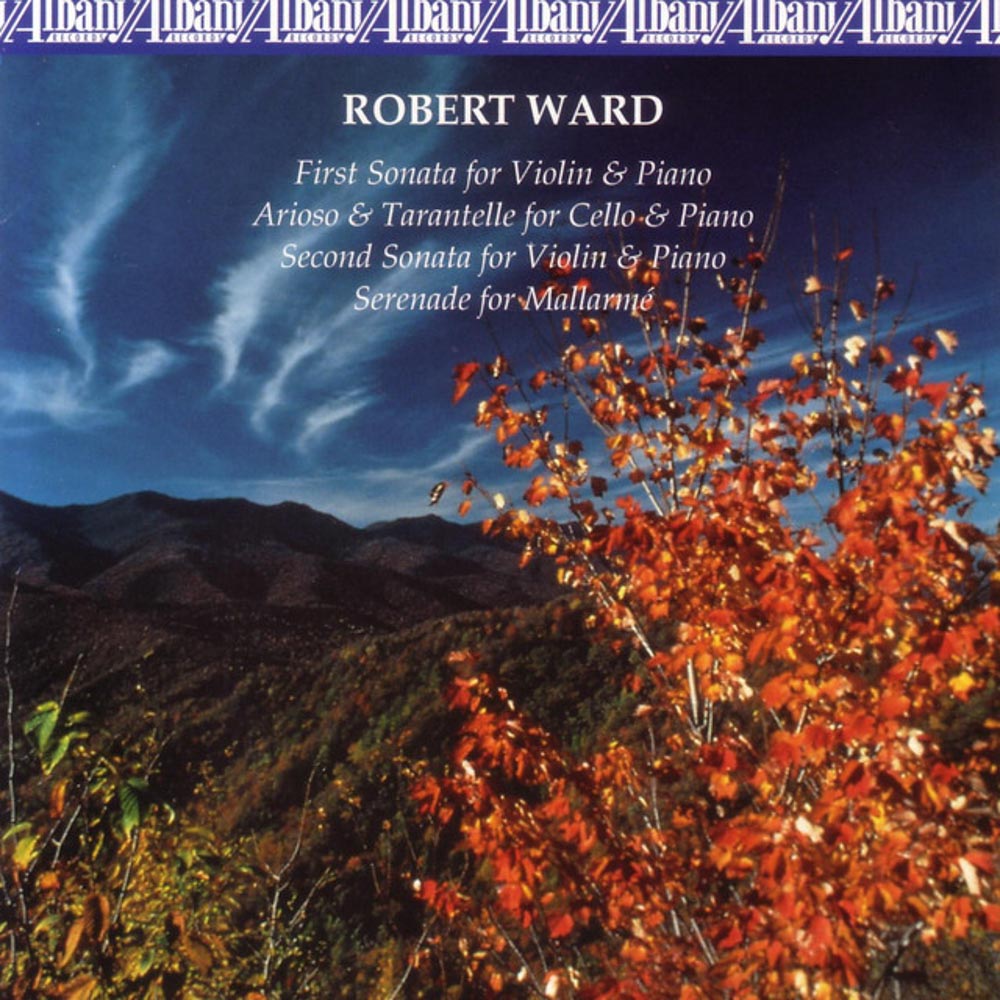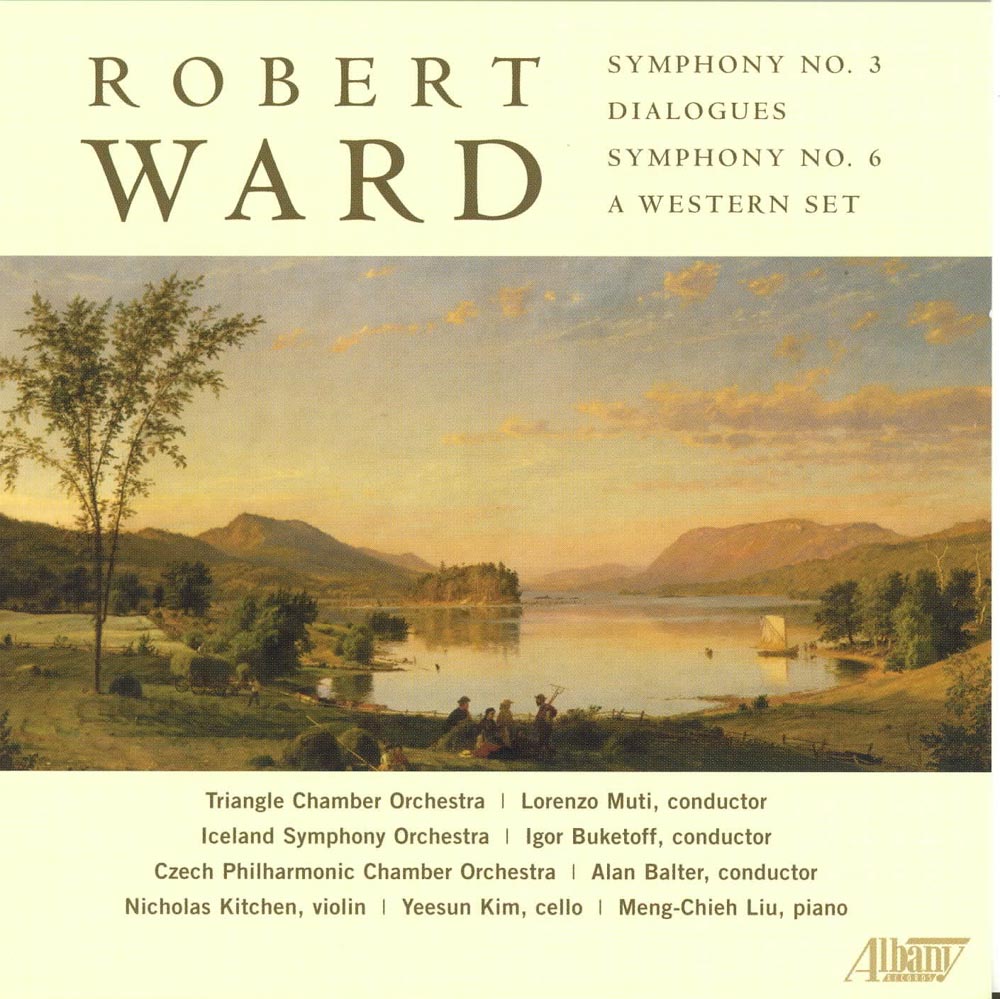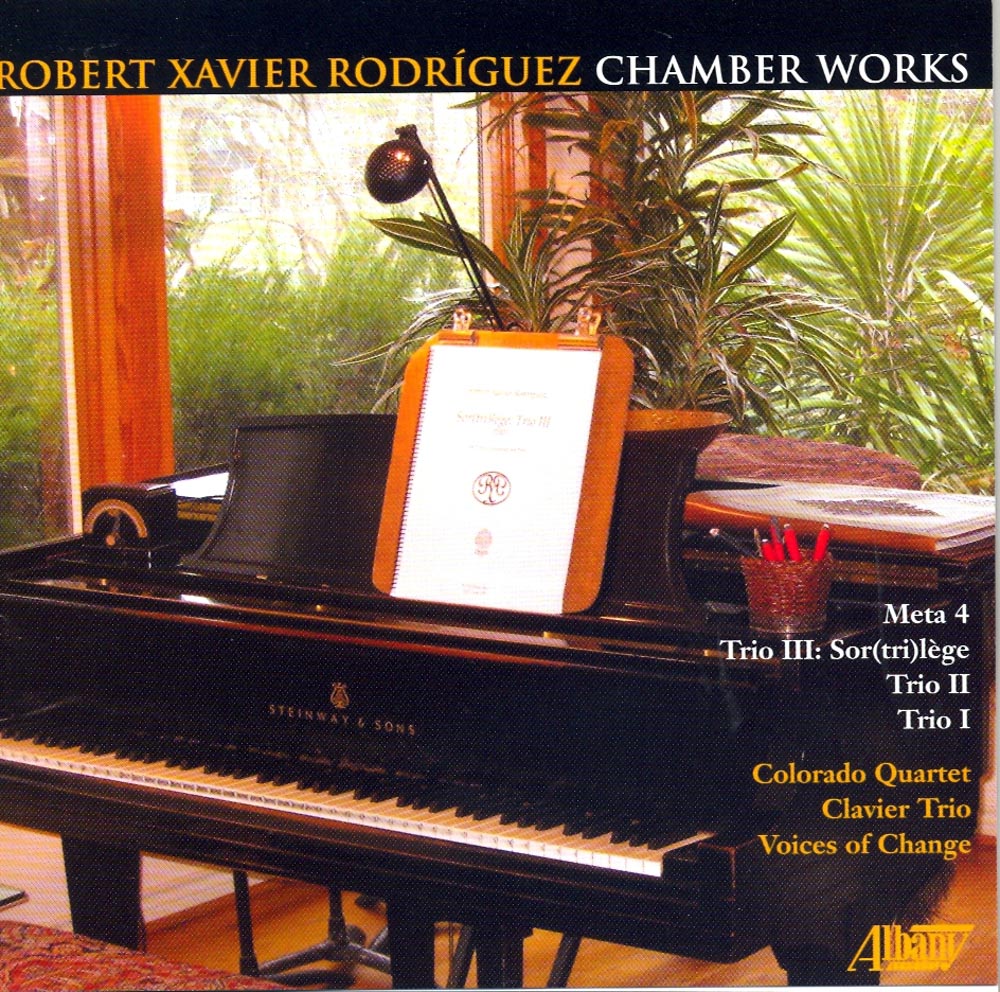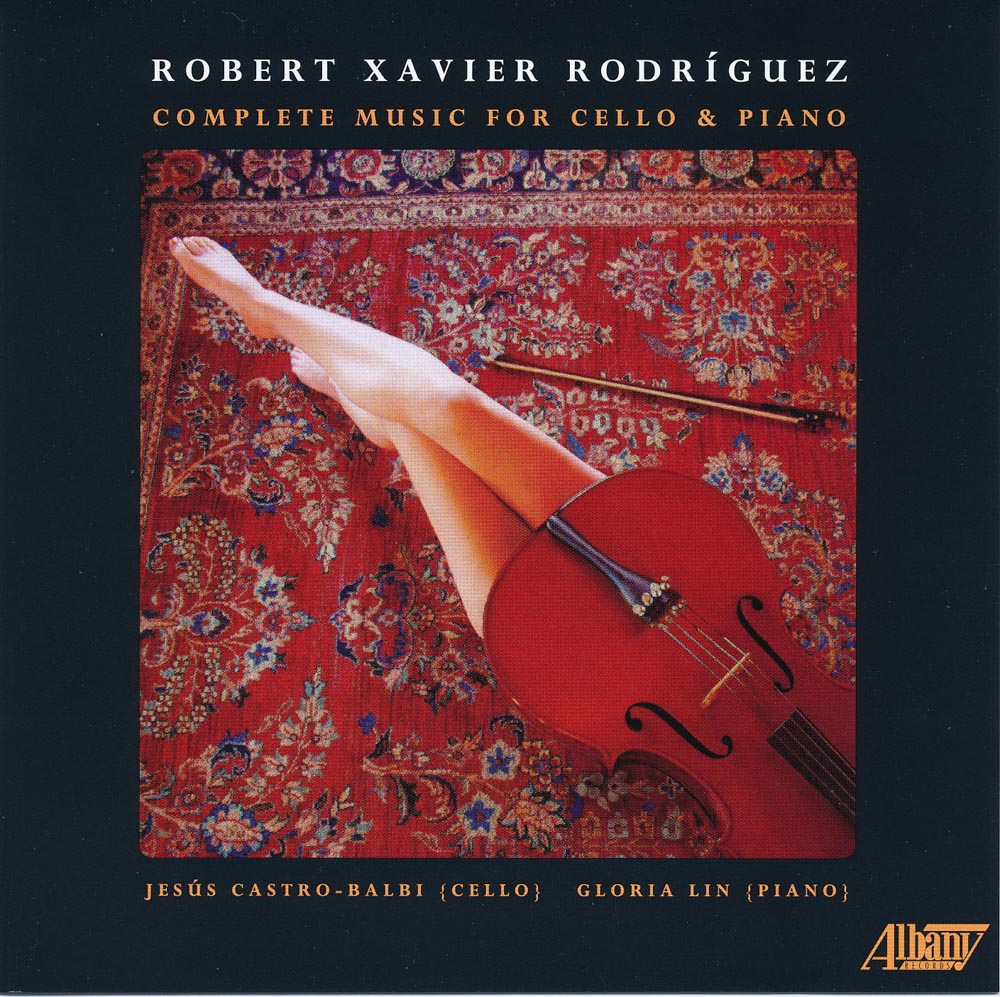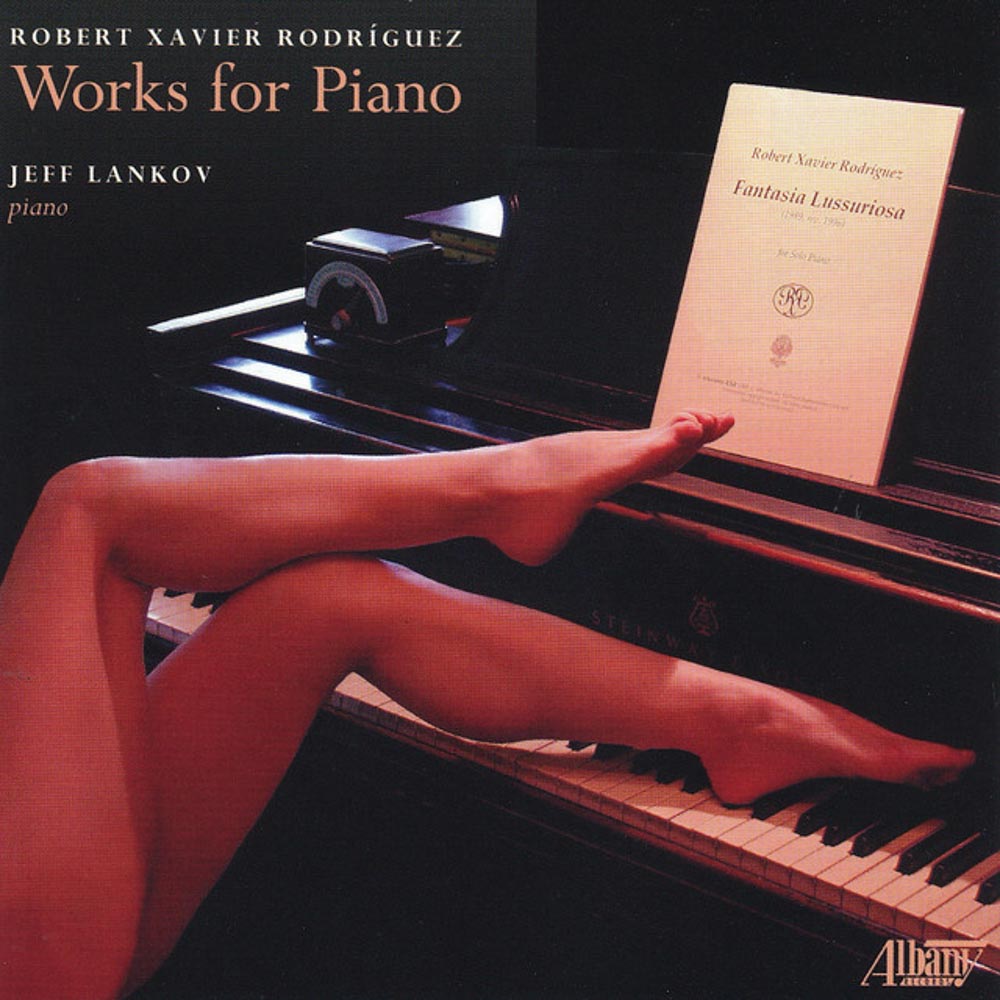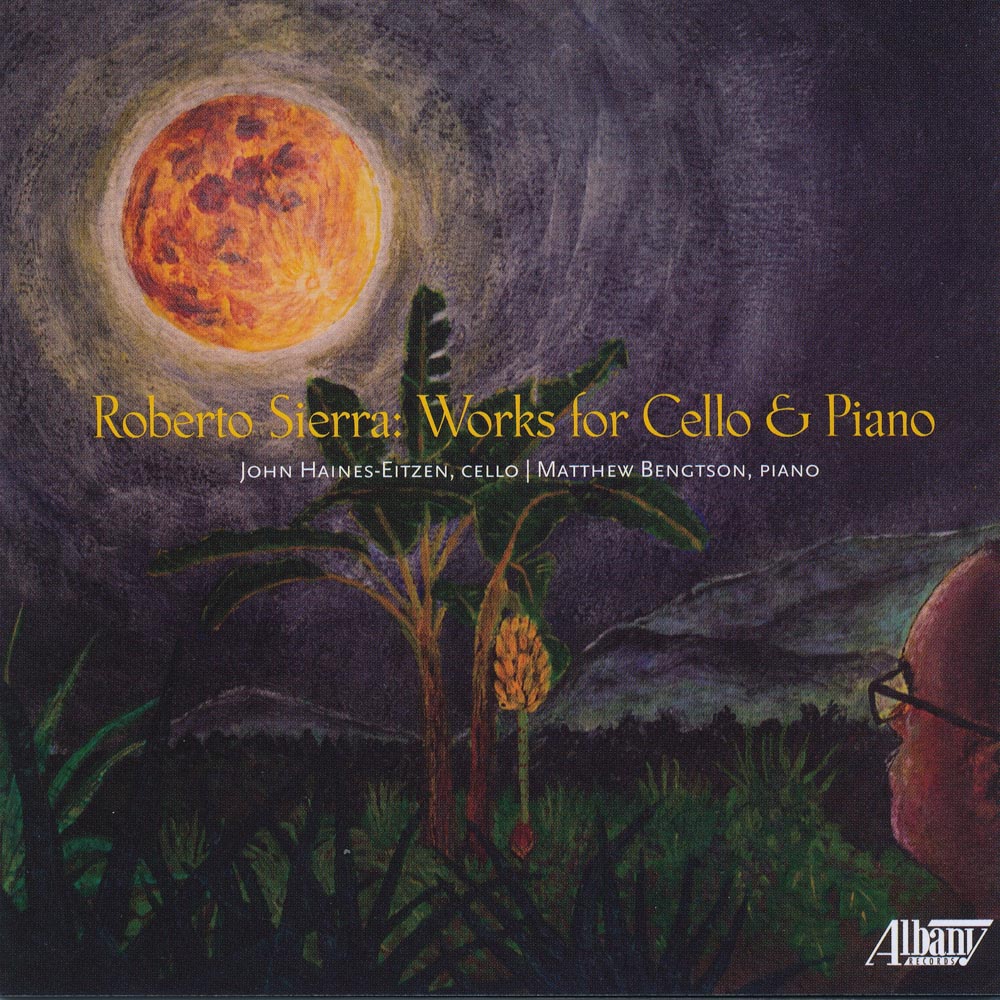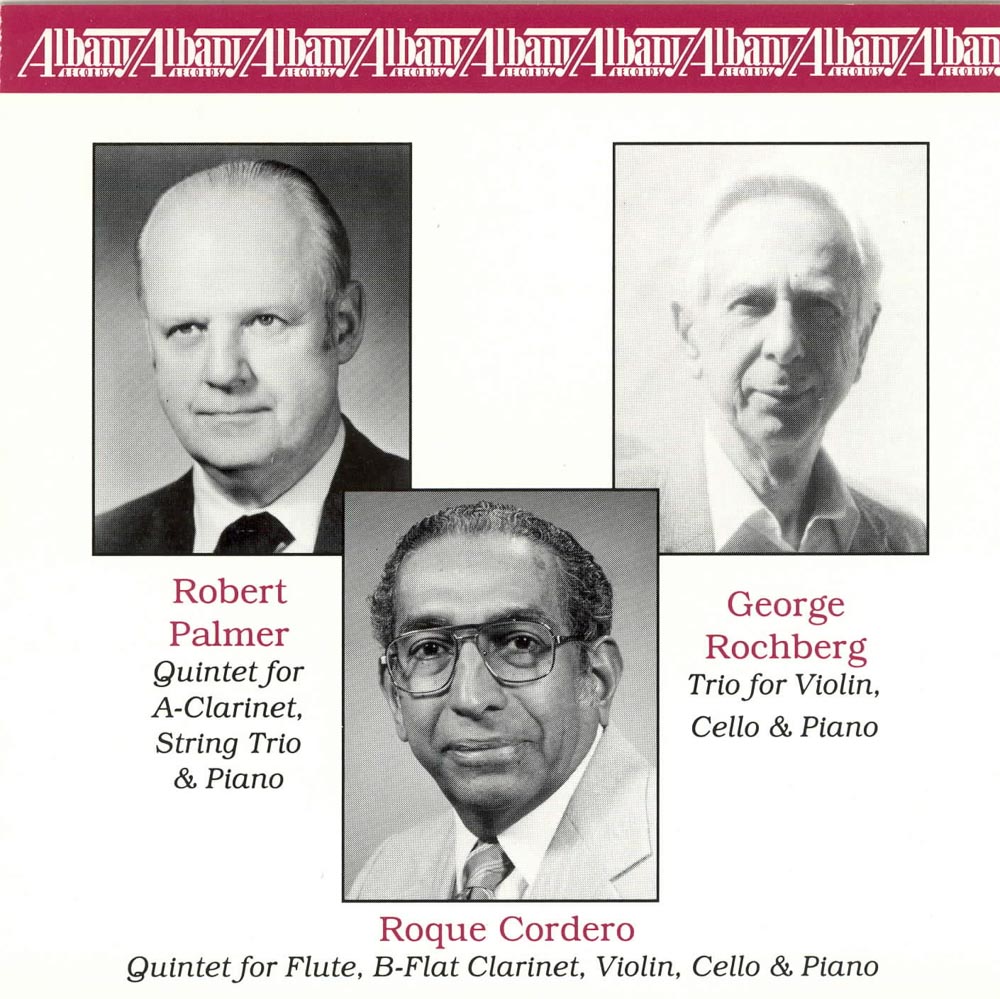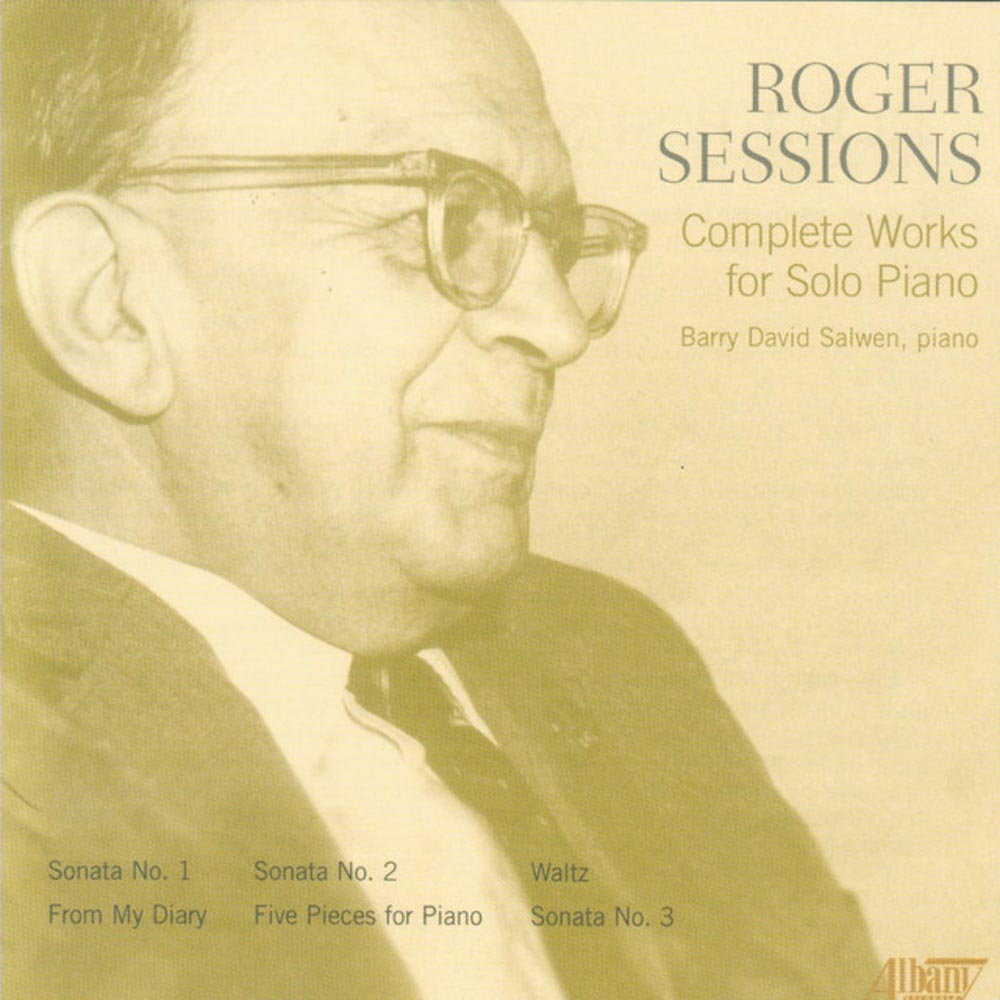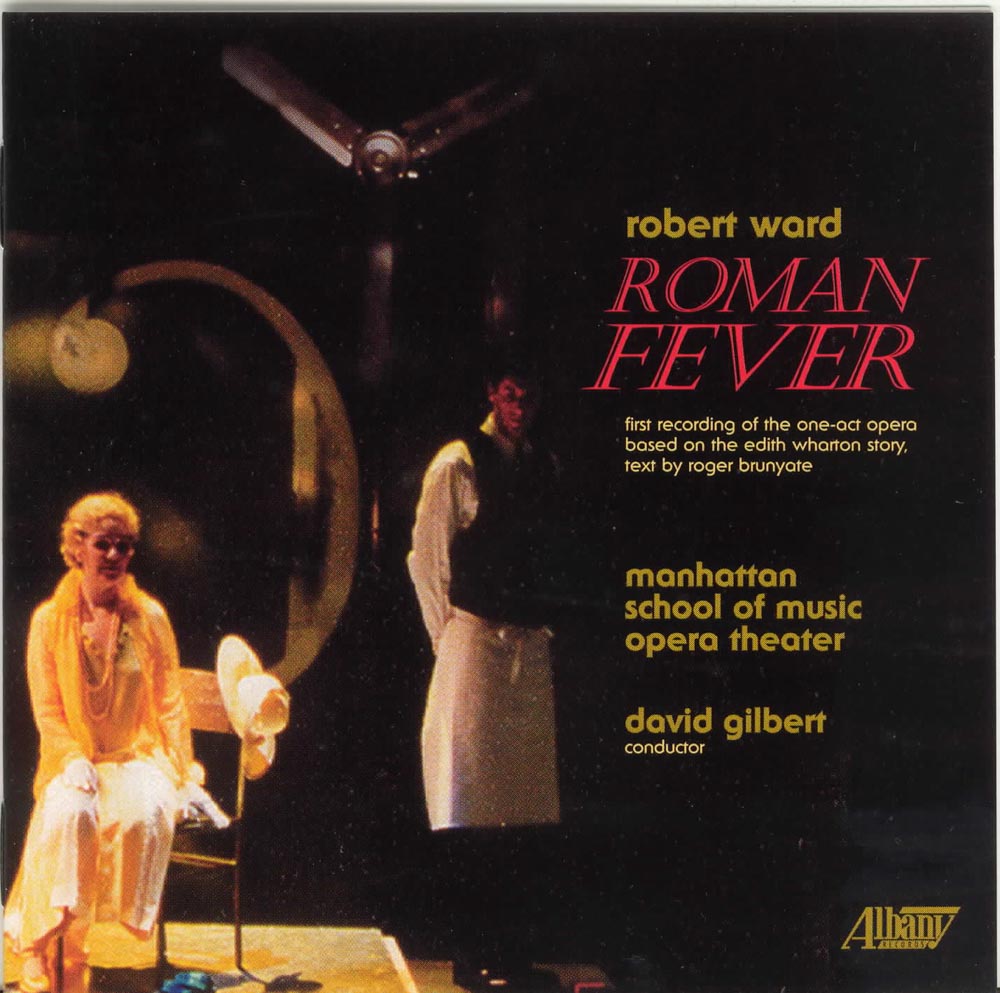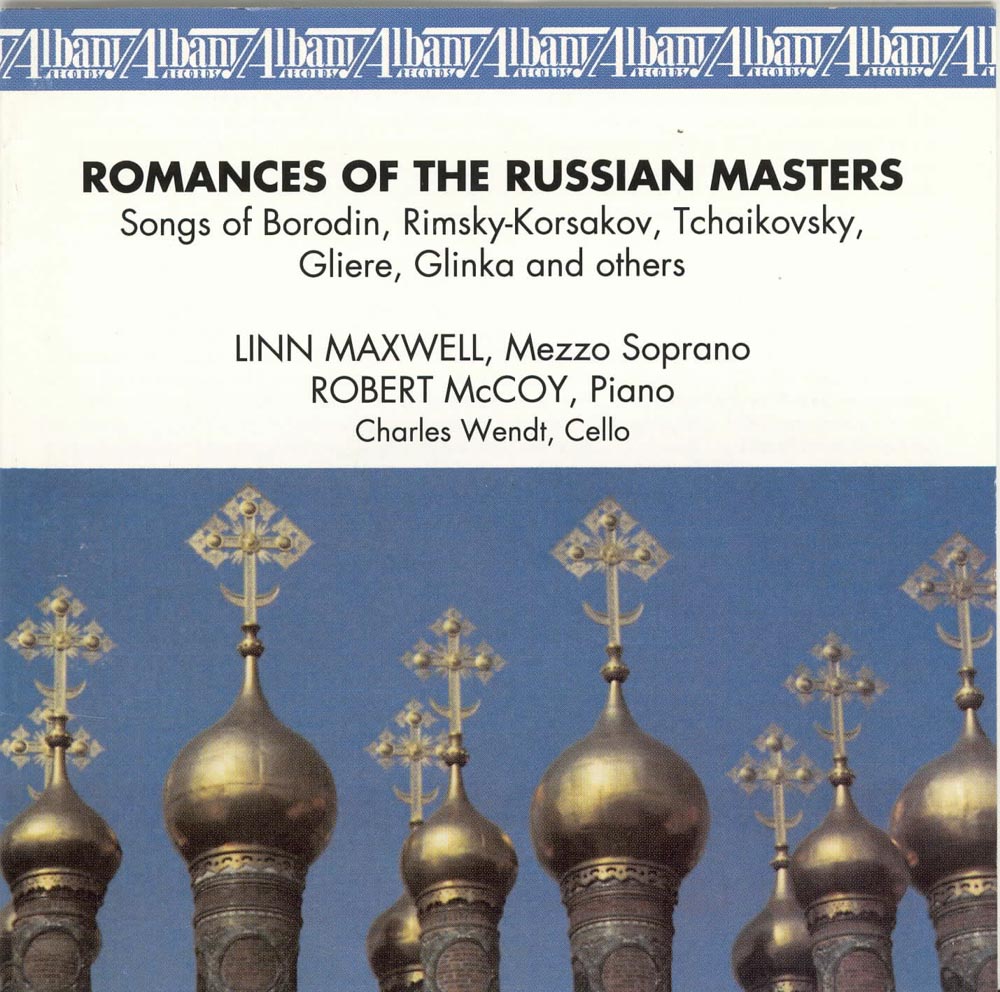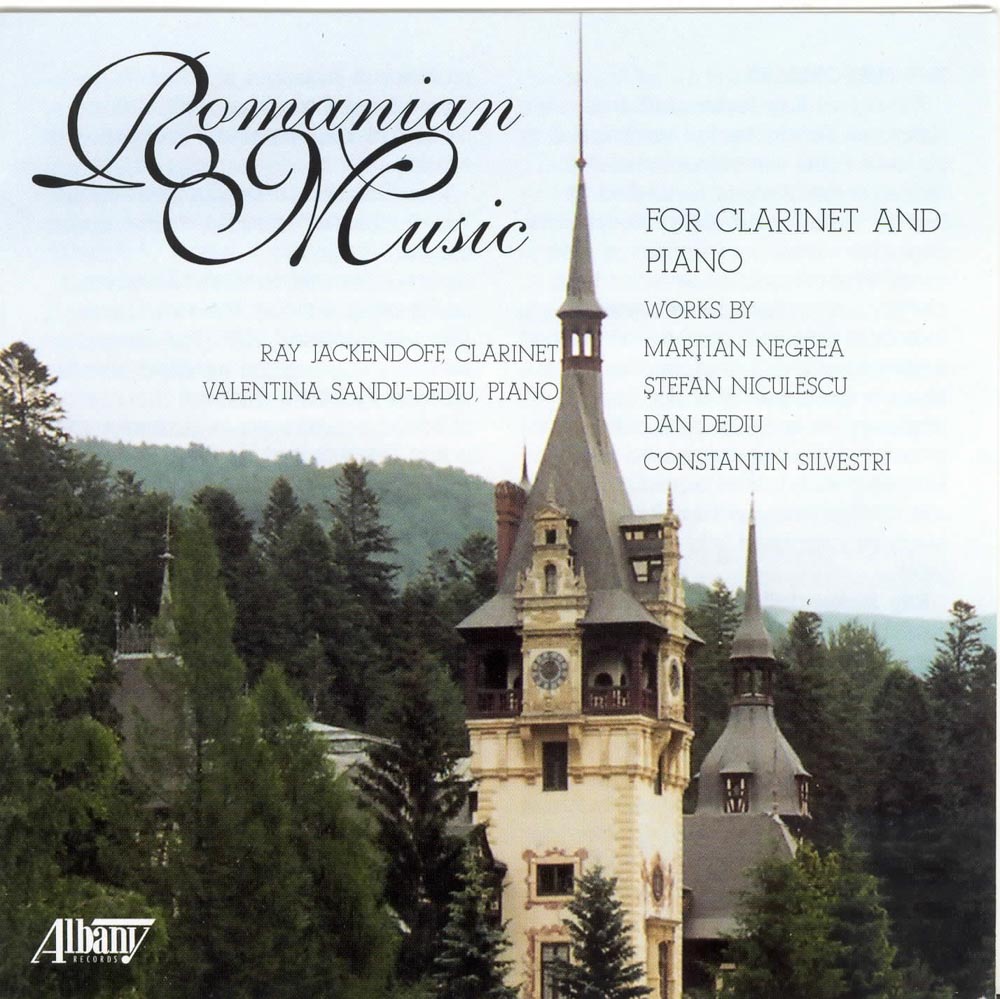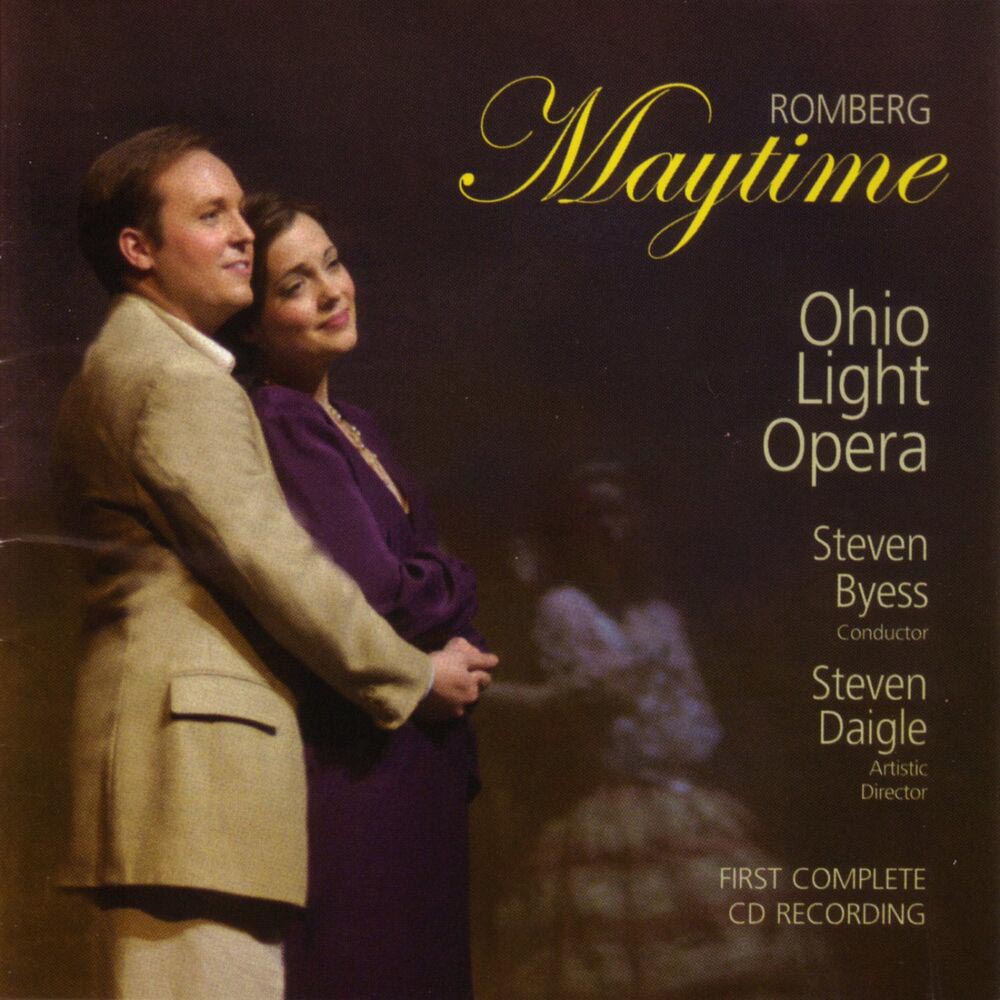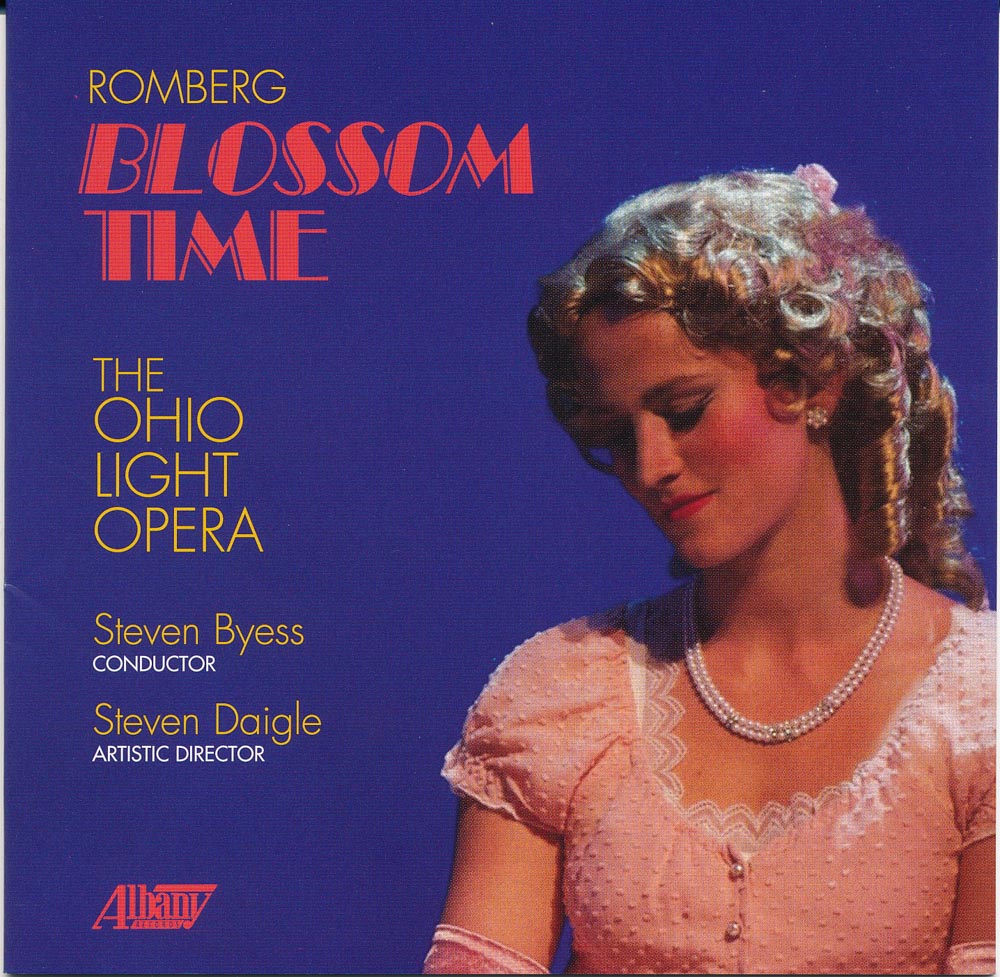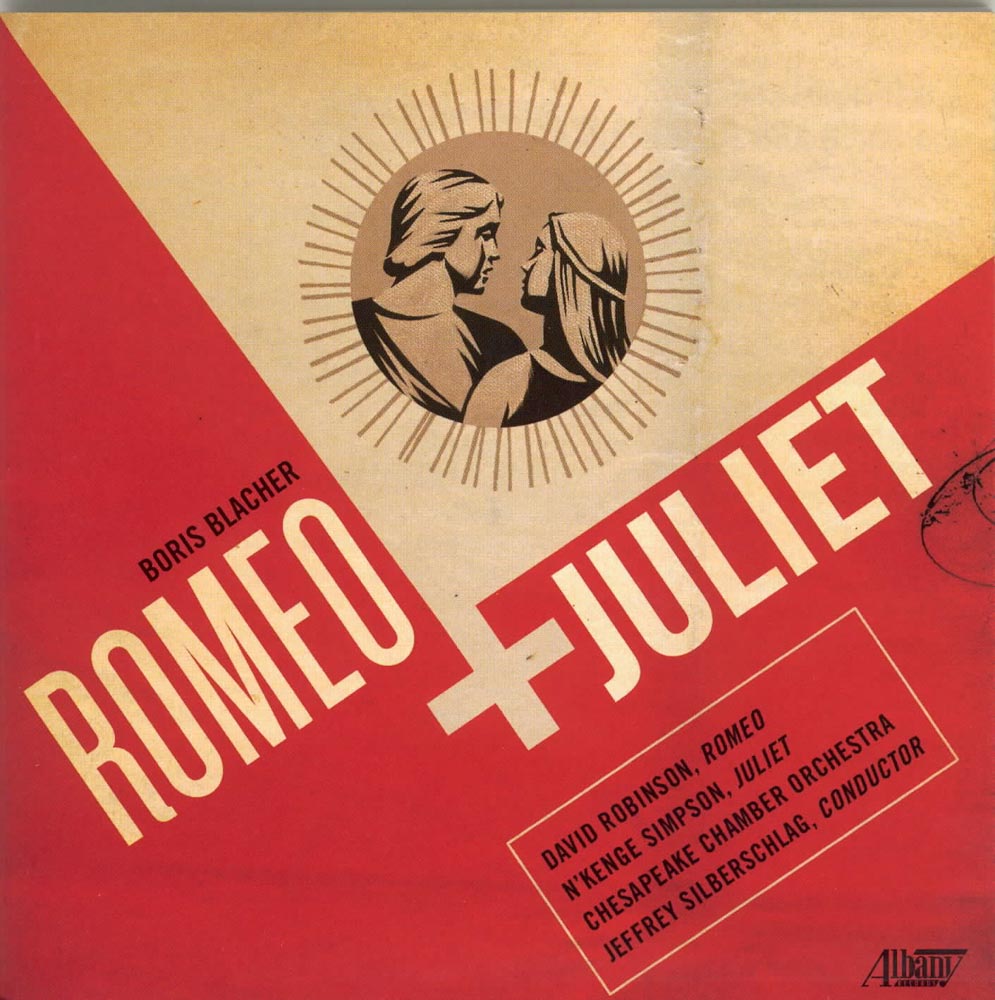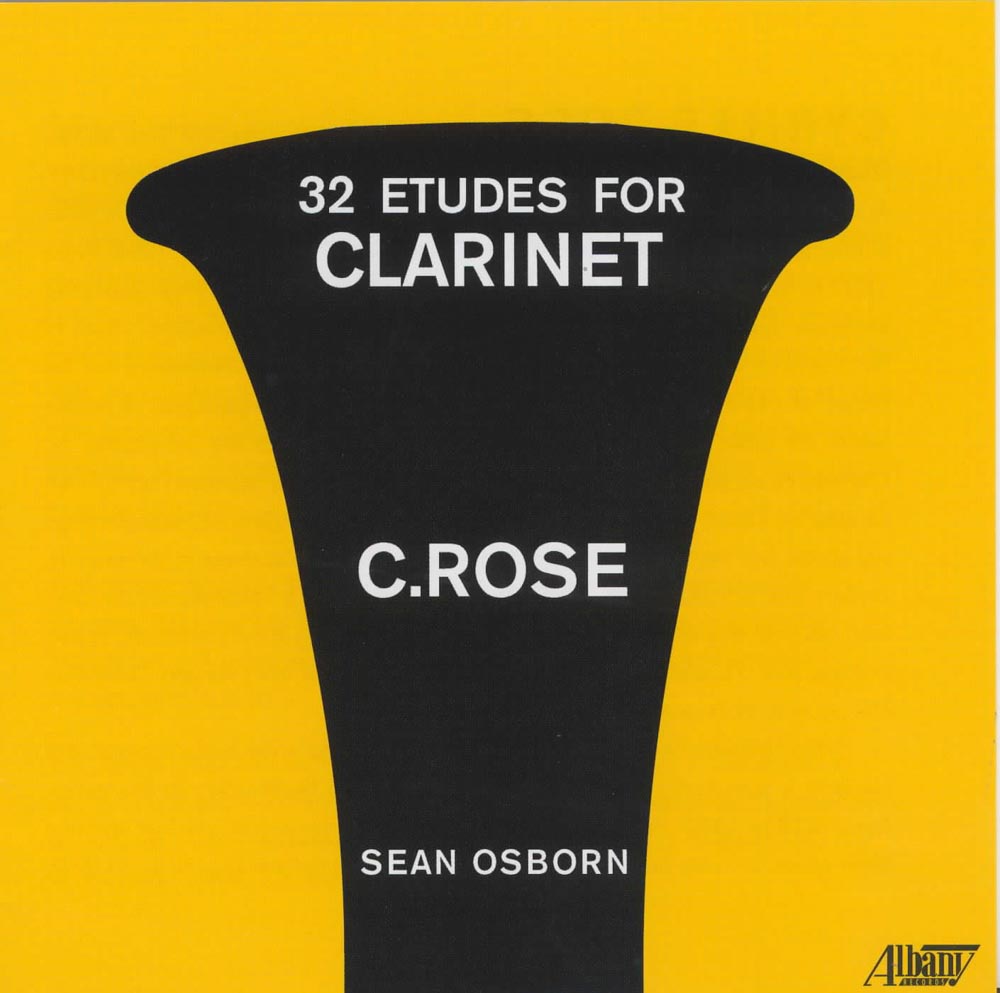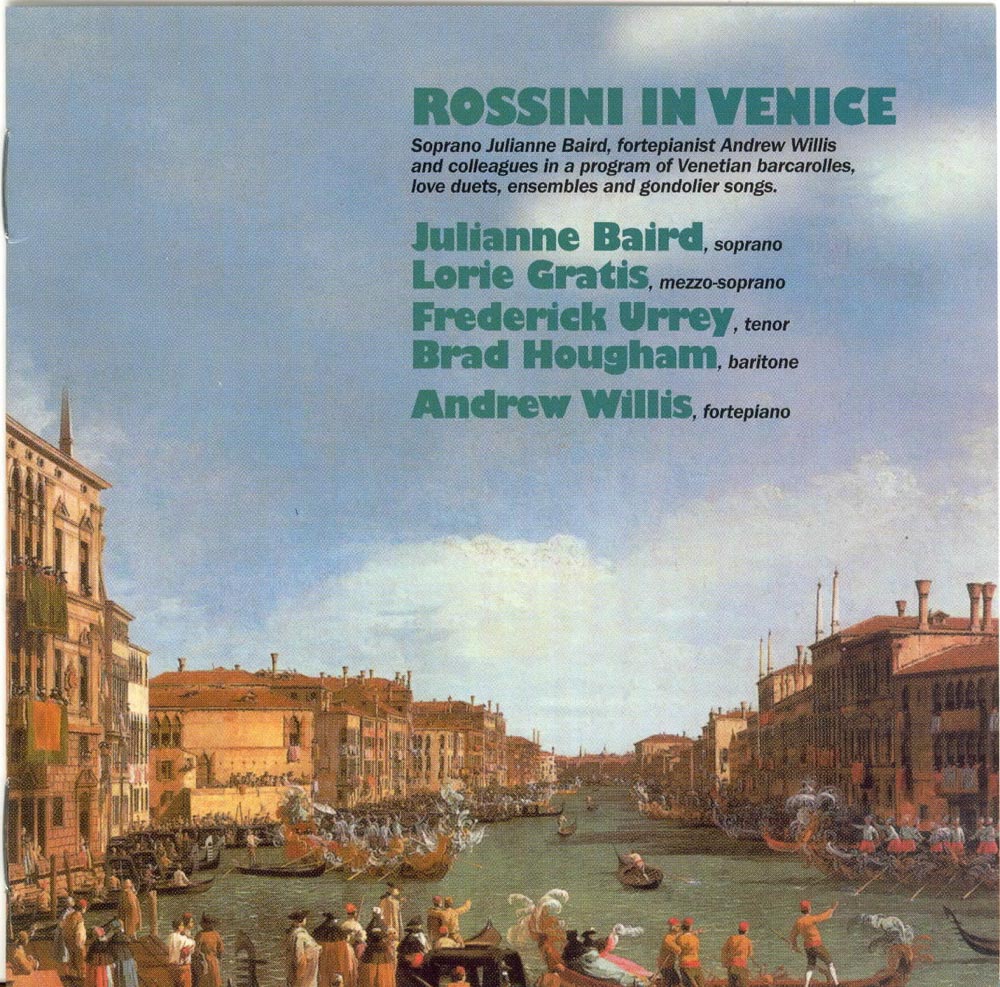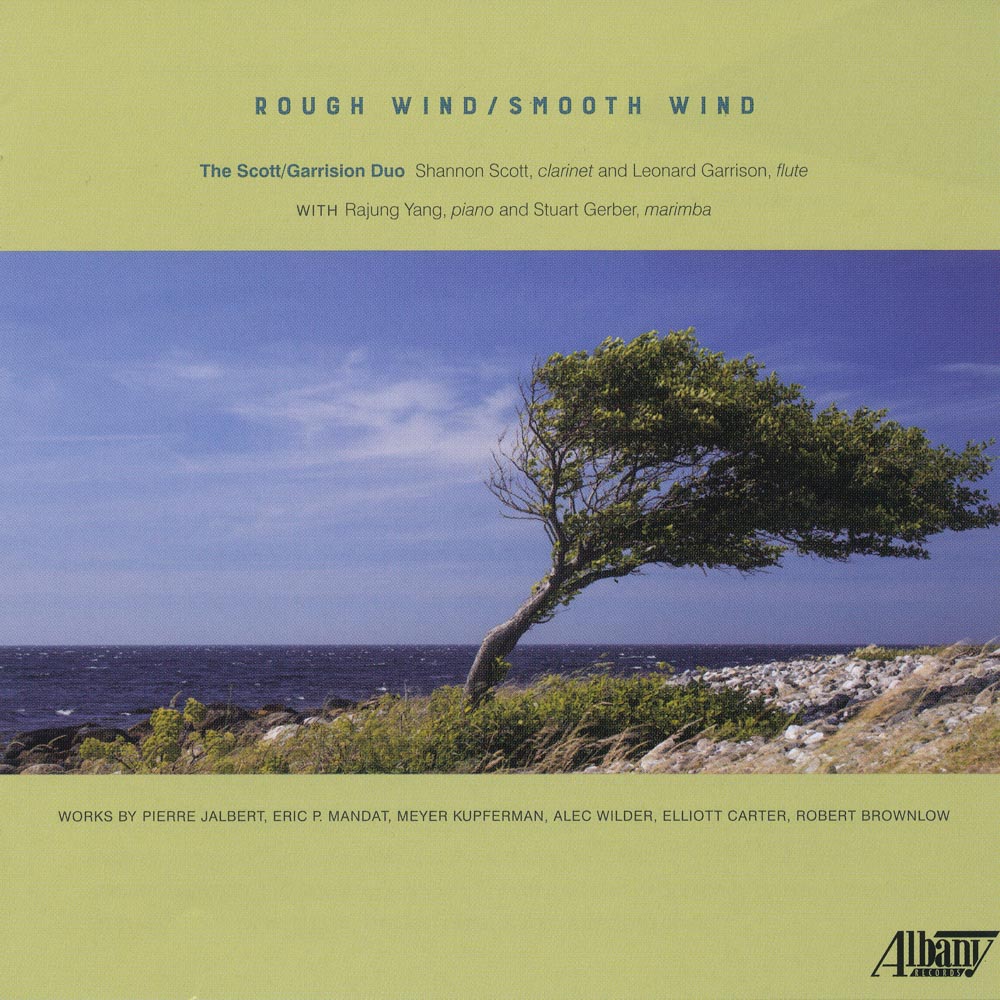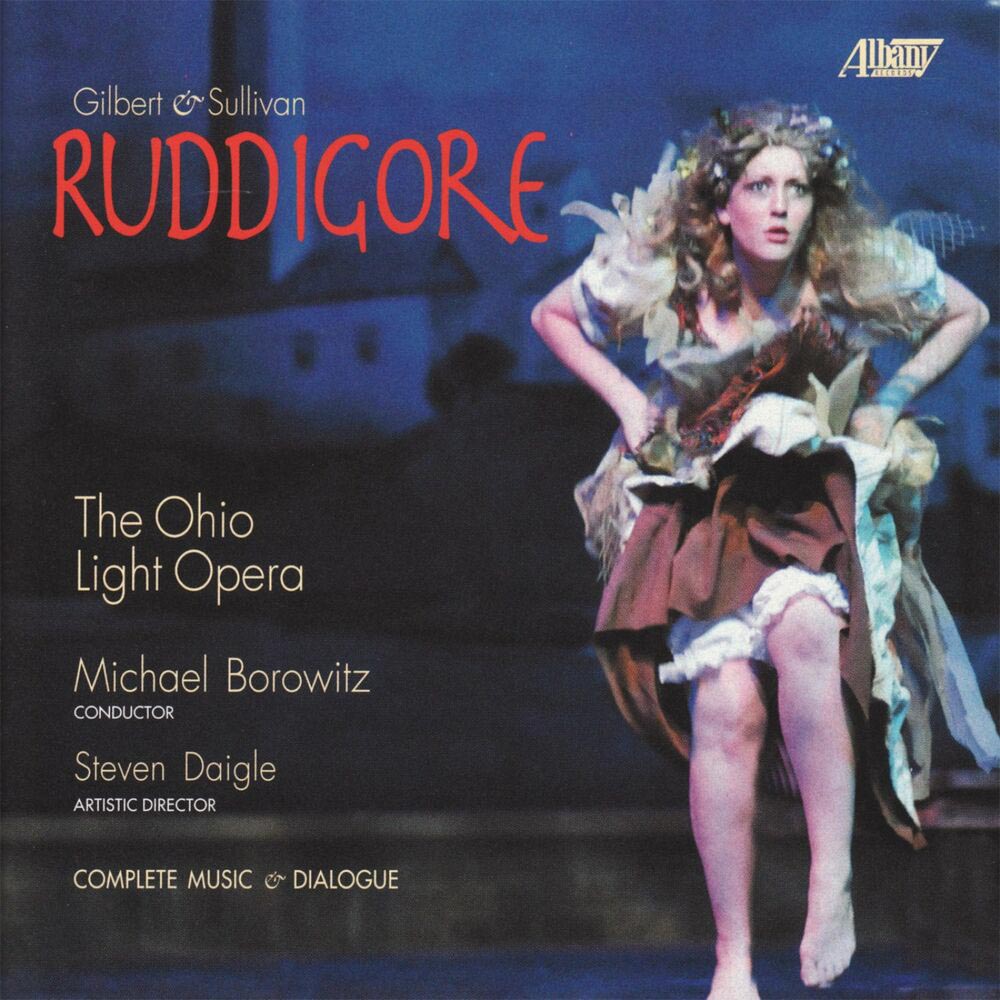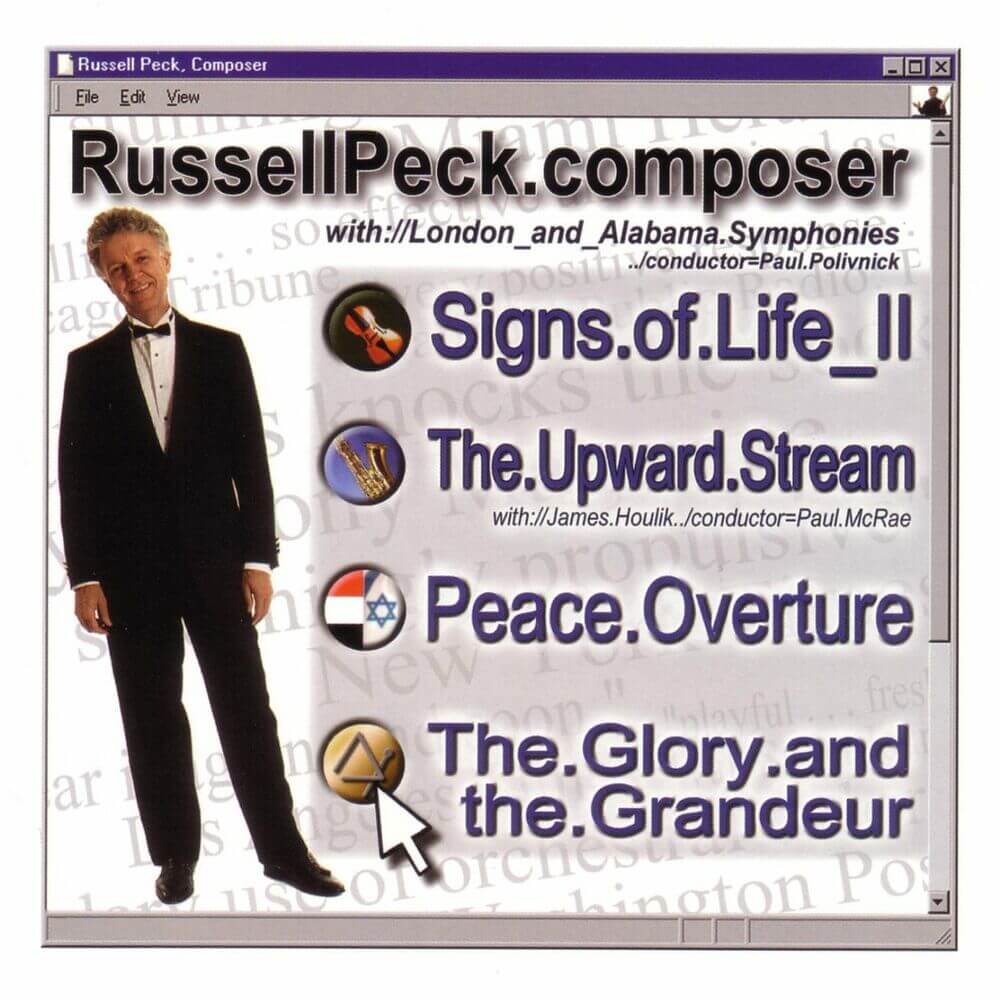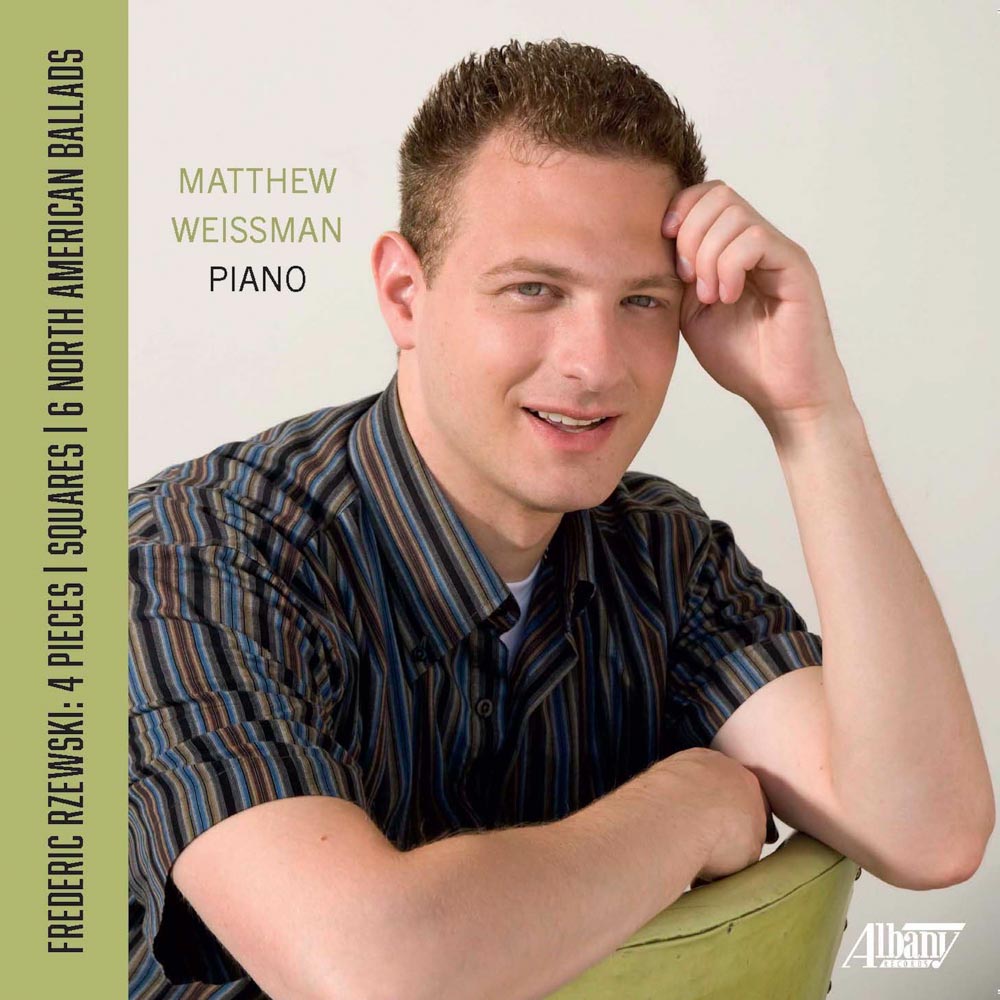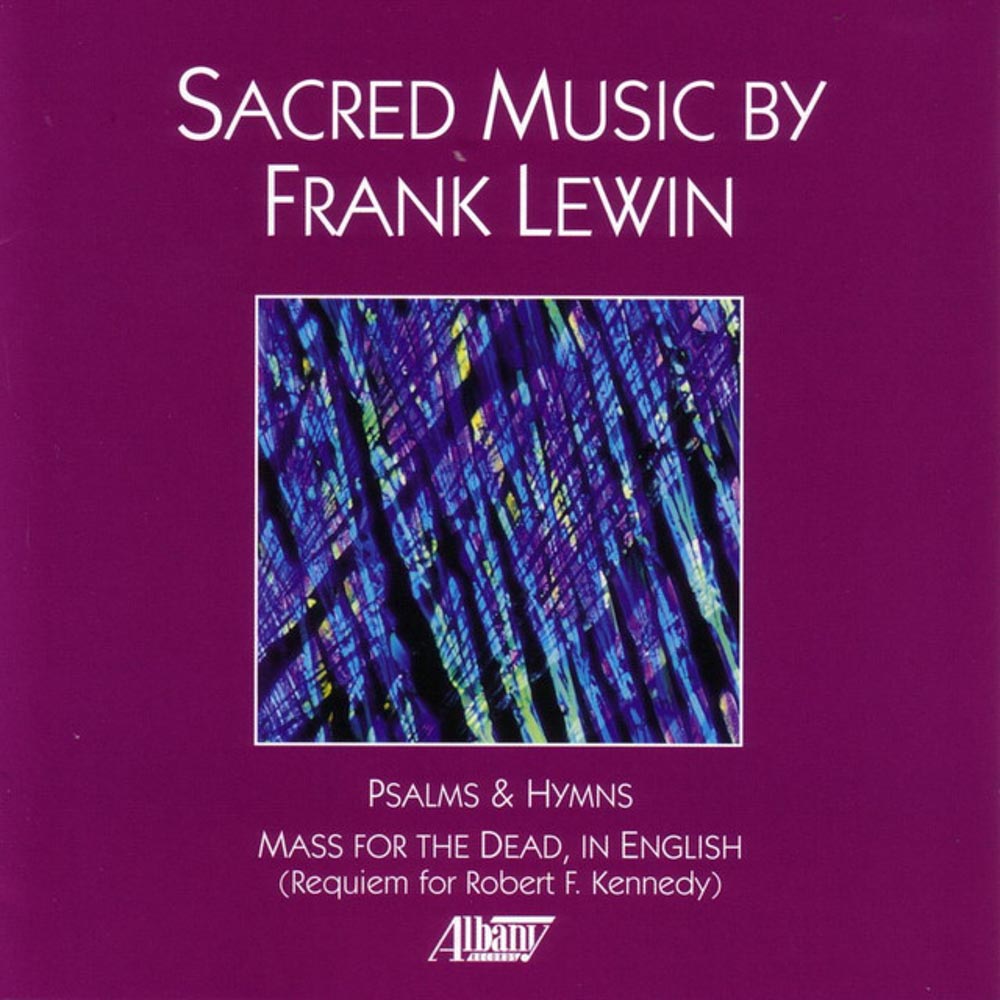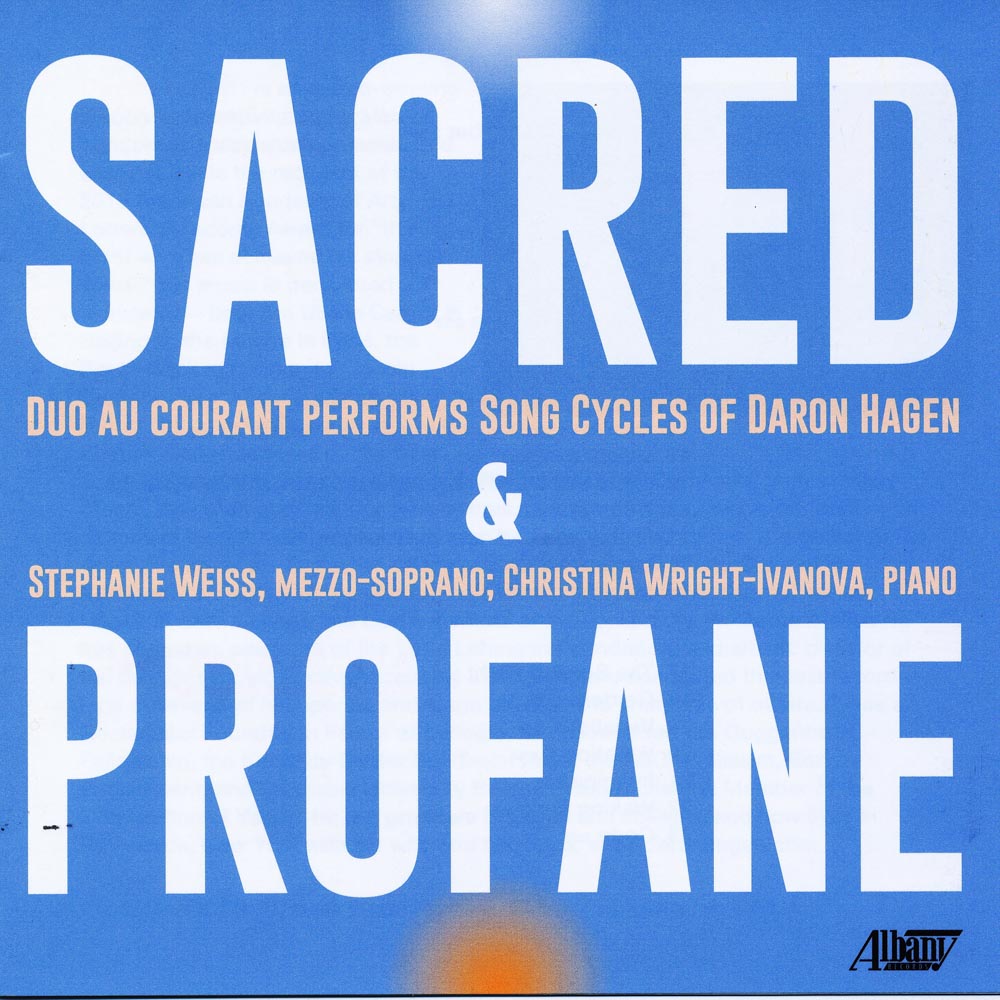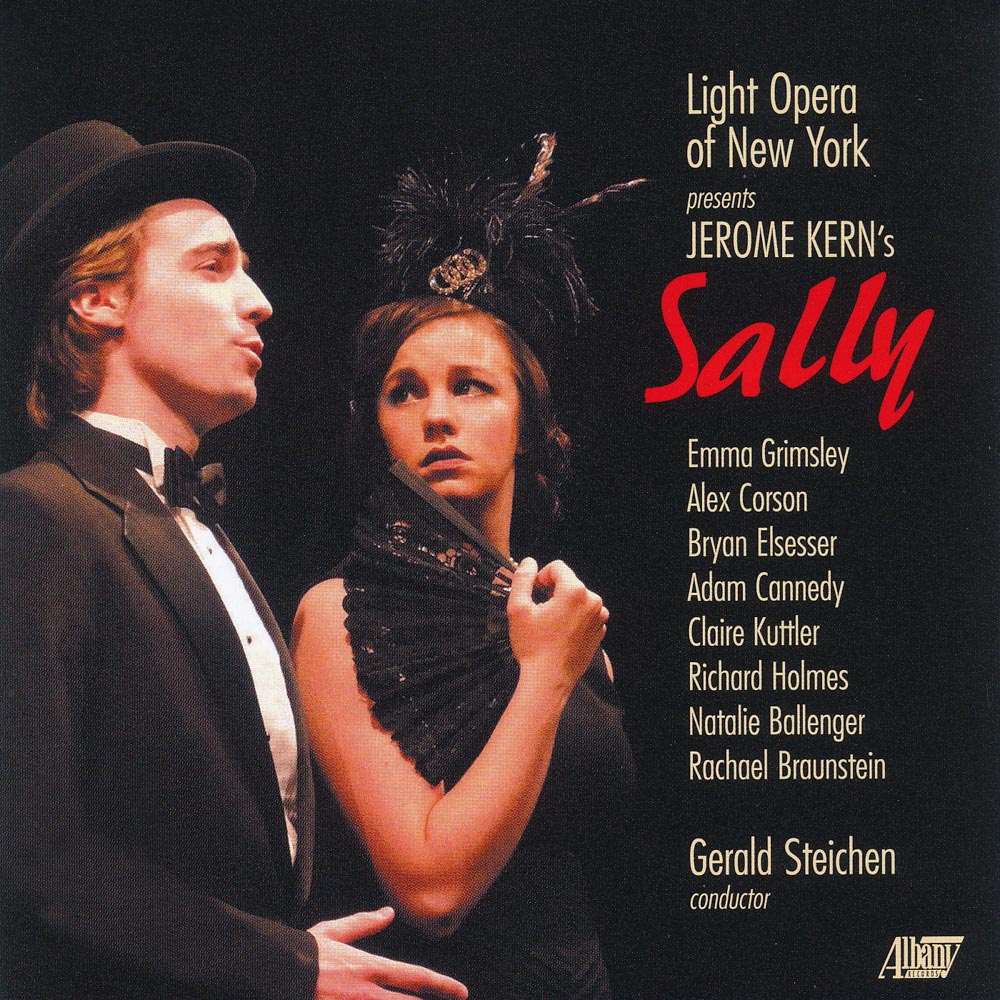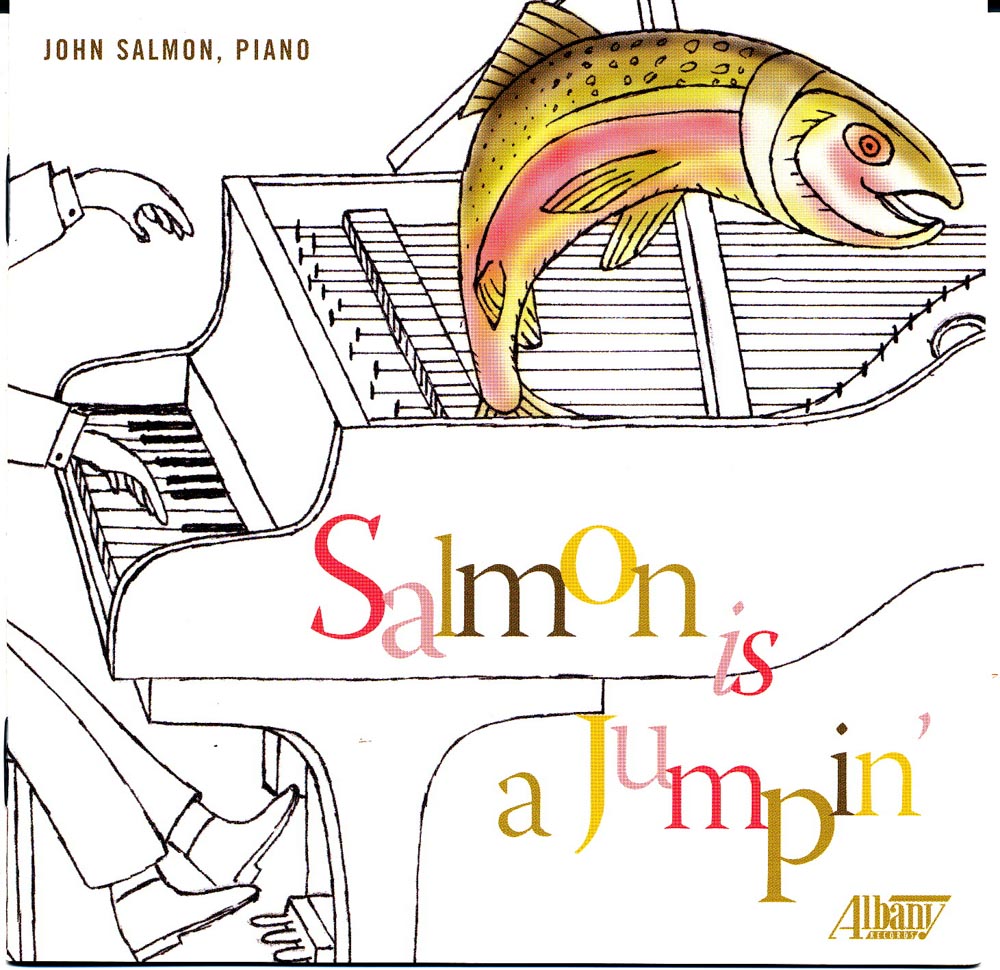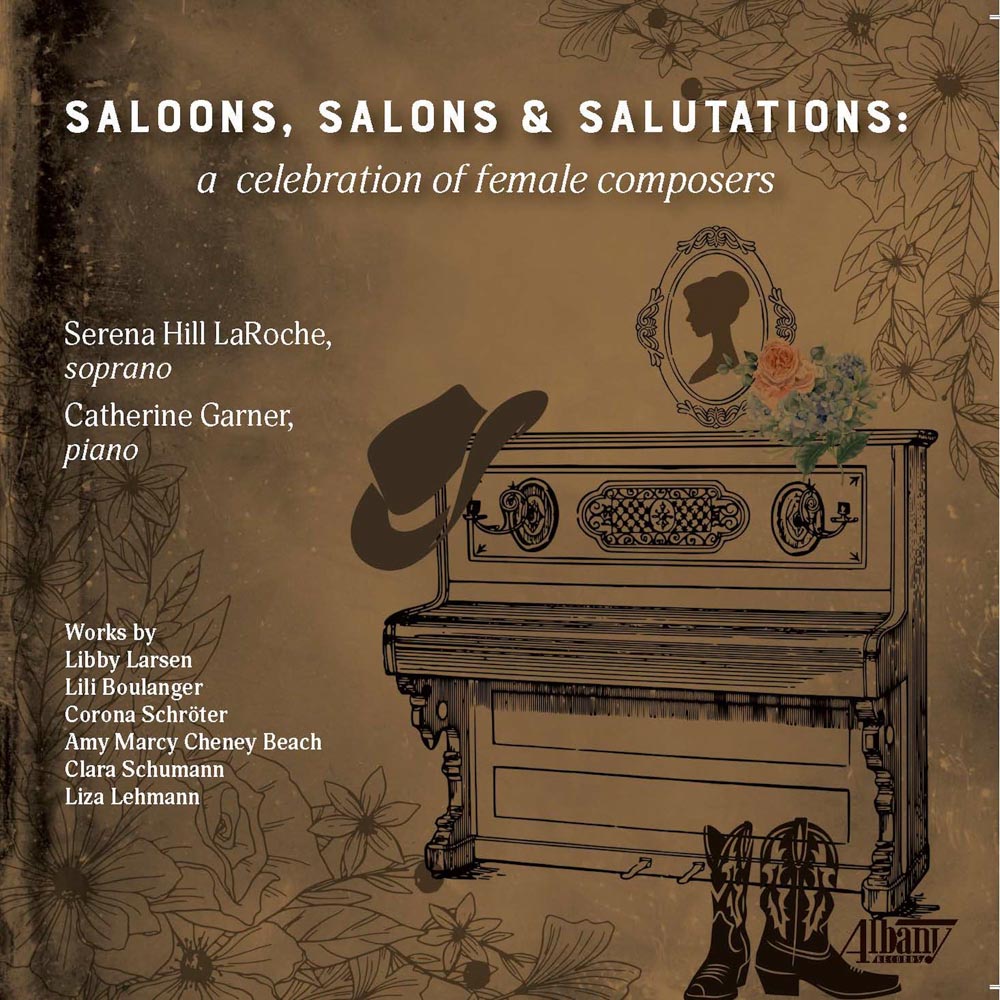Catalog #: TROY0204
Release Date: October 1, 1996ChamberThe fine American composer, Robert Ward, Pulitzer Prize winner for his opera The Crucible, studied at the Eastman School of Music, The Juilliard School, and the Berkshire Music Center. He has taught at Queens College, Columbia University, Juilliard and Duke University where he held the Mary Duke Biddle Chair in Music. He was the Director of the Third Street Music School Settlement, Assistant tot he President of Juilliard and Executive Vice-President and Managing Editor of Galaxy Music Corporation and Highgate Press before becoming president of the North Carolina School of the Arts in 1967. He retired from Duke University in 1988 and since that time has lectured widely in this country, Europe, the Far East and Latin America. He recently won the Gold Baton of the American Symphony Orchestra League and received an Honorary Doctorate of Fine Arts from the University of North Carolina at Greensboro.
Catalog #: TROY0929
Release Date: June 1, 2007OrchestralA recipient of the Pulitzer Prize in 1962 for the opera The Crucible (TROY025-26), Robert Ward is one of the last of a great generation of American composers whose music is full of patriotic high spirits and optimism, with equal measures of warmth and heartfelt melody.
Catalog #: TROY1136
Release Date: September 1, 2009ChamberRobert Xavier Rodríguez is one of the most significant and often-performed American composers of his generation. His music has been described as "Romantically dramatic" and "richly lyrical" by the press. He first gained international recognition in 1971 when he was awarded the Prix de Composition Musicale Prince Pierre de Monaco for his Trio I heard on this recording. A student of Nadia Boulanger, Rodríguez also studied composition with Jacob Druckman, Bruno Maderna and Elliott Carter. He holds the Endowed Chair of University Professor at The University of Texas at Dallas. His music has been performed all over the world by orchestras and at chamber music festivals. This recording offers a much-welcomed survey of his chamber music.
Catalog #: TROY1355
Release Date: June 1, 2012InstrumentalCalled "one of the major American composers of his generation" (Texas Monthly), Robert Xavier Rodriguez's music has been described as "richly lyrical" by Musical America. He first gained international recognition in 1971 when he was awarded the Prix de Composition Musicale Prince Pierre de Monaco. Other honors include the Goddard Lieberson Award from the American Academy of Arts and Letters. He has served as composer-in-residence with both the San Antonio and Dallas symphonies and is on the faculty at the University of Texas at Dallas. This recording offers his complete music for cello and piano, written between 1979 and 2006. Cellist Jesús Castro-Balbi, who is on the faculty at Texas Christian University School of Music, and Taiwanese-born pianist Gloria Lin, also on the faculty at TCU, offer ravishing performances of this music.
Catalog #: TROY1477
Release Date: March 1, 2014InstrumentalRobert Xavier Rodriguez has been called “one of the major American composers of his generation” (Texas Monthly), and his music has been described as “richly lyrical” by Musical America. He first gained international recognition in 1971 when he was awarded the Prix de Composition Musicale Prince Pierre de Monaco. Other honors include the Goddard Lieberson Award from the American Academy of Arts and Letters. He has served as Composer-in-Residence with both the San Antonio and Dallas symphonies, and he is on the faculty at the University of Texas at Dallas. Composer Robert Xavier Rodriguez comments that his teacher Nadia Boulanger told him “that I would be only half a composer until I also learned to express in my music the same love of laughter that she knew I enjoyed as a person I think Boulanger would be pleased to see that all of the pieces on this CD, dating from the 80s to the present, incorporate humor in some way.” Noted pianist Jeff Lankov, who has edited Rodriguez’s piano works for G. Schirmer, gives informed, sensitive performances of this delightful music.
Catalog #: TROY1700
Release Date: December 1, 2017InstrumentalComposer Roberto Sierra's fourth recording in the series of his music on Albany Records features music for cello and piano. More than three decades separate the compositions, but despite this, there is a common thread that unites all the repertoire—an approach to composition that draws and builds on Sierra's musical heritage. Growing up in Puerto Rico, studying 18th and 19th century European piano repertoire, his musical memory merged this with the sounds of the popular Afro-Caribbean music of the time and this unique DNA shows in his compositions. A member of the American Academy of Arts and Sciences, Sierra's music is performed throughout the world. He has served as Composer-in Residence with the Milwaukee Symphony Orchestra, the Philadelphia Orchestra, the Puerto Rico Symphony Orchestra, and the New Mexico Symphony. Cellist John Haines-Eitzen and Matthew Bengston call themselves the "Sierra Duo," having established a special relationship with the composer. They have spent years studying and performing Sierra's passionate and virtuosic music for cello and piano and this recording demonstrates their deep affinity for his music.
Catalog #: TROY0712-13
Release Date: November 1, 2004OperaJames Stuart, the person in charge of preparing the new performance edition of Robin Hood writes: "The Ohio Light Opera production of Robin Hood brings my world of operetta full circle. As a lad a few years into his teens, I attended a performance of this work given by Louisiana State University. I had caught the opera bug a few years earlier when the boys' choir in which I sang was chosen to appear as acolytes in the Te Deum scene of LSU's Tosca. At that time, I didn't distinguish a difference between opera and operetta Ð to me they both meant orchestra, singers, sets and costumes. I soon learned that although the ingredients were the same, there are distinctions. There are patronizing persons who equate lightness of style and subject with lightness of quality. This, of course, is not accurate. The finest operettas may be of vastly superior musical quality to grand operas produced by more minor composers. To my mind, this is the case with Reginald De Koven's Robin Hood, generally referred to as the first great American light opera. But is it American? Although De Koven was born and died in this country, most of his formative years were lived in England and Europe. Born in Middletown, Connecticut on April 3, 1859, he moved to England with his family at the age of 11. He studied with among others, Franz von Suppe in Vienna and Leo Delibes in Paris. De Koven felt that light opera needed "to be as well sung in its way as grand opera," and composed for his singers in that manner. When Robin Hood was first presented critics generally wrote of "reminiscences of Sullivan and Offenbach." Like Sullivan, he wanted to write a grand opera. It is said that Sir Arthur Sullivan remarked with disenchantment while attending a performance of his own opera Ivanhoe. "...a cobbler should stick to his last." And so with De Koven. Richard Aldrich, theatrical producer and husband of Gertrude Lawrence wrote in The New York Times (March 11, 1917): "Such popularity as Robin Hood has had is not given to many comic operas to win and to keep so long."
Catalog #: TROY0153
Release Date: May 1, 1995ChamberThose of you with great memories will remember that this recording was once available on the Vox-Turnabout series of American Music. The stunning thing about this CD premiere is the quality of the recording itself. This was never obvious from the original LP. George Rochberg needs no introduction, but Roque Cordero, the Panamanian composer born in 1917, is woefully underrepresented in the catalog. He is a composer of stature and this Quintet is a fine composition, as is the Quintet by Robert Palmer who was born in Syracuse, New York in 1915. Palmer studied at Eastman with Ernst Bacon and Howard Hanson and for many years taught at Cornell.
Catalog #: TROY0802
Release Date: November 1, 2005InstrumentalWe admit it: Sessions' music is not for the casual listener or someone just getting into modern music. If you start cold with one of the later symphonies, it's like jumping into the middle of a book on advanced physics. But if you start at the beginning and work your way through, you will enjoy some of the most profound music written by an American. The early works might bear a passing resemblance to Copland, but by the later works it is obvious that Sessions has absorbed the complex sound world explored by Schoenberg and refined it. In all of his music, you are struck by the realization that these intense works are truly music, and not mere exercises in sonority. That is why this reissue is so important: spanning his creative lifetime, this collection of the complete solo piano works will give you a remarkable insight into this most significant of modern composers. Barry David Salwen has been the Executive Director of the Roger Sessions Society since 1988. Besides specializing in new music, he has performed widely the music on this disc as part of his original lecture-recital, "The Piano Sonatas of Roger Sessions," first presented in 1986. This and his contact with the composer during his doctoral work at Juilliard make him the authoritative performer. This CD is a major contribution to the recorded Sessions canon.
Catalog #: TROY0505
Release Date: March 1, 2002OperaRoman Fever had its world premiere in Durham, NC in the Spring of 1993. Robert Ward, Pulitzer-prize composer and retired Mary Duke Biddle Professor at Duke University, composed the music for the opera based on the well-known short story by Edith Wharton. The librettist, Roger Brunyate, is a stage director for the opera department at the Peabody Conservatory in Baltimore. "Earlier," said Ward in an interview, "Roger told me he was speaking to all his composer friends about writing operas with predominantly female casts. His idea seemed a good one, since most university and conservatory opera groups are three-quarters women and one-quarter men, and opera casts are usually the opposite - mostly men, fewer women." Shortly after this, Ward happened to read Wharton's short stories, including "Roman Fever." "I thought, My God, what a story, so I contacted Roger to see if he'd like to write the libretto while I worked on the music." The title refers both to malaria, the disease which once flourished in the marshes near Rome, and, metaphorically, to the giddiness that strikes many who visit the romantic Italian capital. Despite dark elements, the composer describes his work as a "tragicomedy: no one dies. "The tragic element," says Ward, "lies in the thing that in our life we have failed to achieve: relationships, career, the thing that leaves a kind of ache inside throughout our lives." The score of the opera displays a number of interesting musical styles: the old-style Italian ballad, a jazz duet, an operatic aria and a soaring quartet where each woman expresses her individual thoughts. Said Ward, "I've never written anything so overtly jazzy as this duet in this show 'They Kissed our Hands'."
Catalog #: TROY0072
Release Date: November 1, 1992VocalThe selections on this recording were chosen from the rich treasury of Russian art songs, or romances, as they are called in Russian. What has been attempted with this recording is to give the listener a sampler of nineteenth century Russian romances. There are songs by composers who are better-known for their larger orchestral or operatic forms, namely Borodin, Mussorgsky, Glinka, Rimsky-Korsakov and Tchaikovsky, along with the less well-known composers, Dargomyzhsky, Arensky, Gliere, and Cui, who shaped the music of their own culture by writing large numbers of romances. The above-mentioned composers can well represent the nineteenth-century Russian romance from its earliest beginnings into the twentieth century. A native of Indiana, mezzo-soprano Linn Maxwell enjoys a rich and varied career that takes her to the stages of major orchestras, opera companies and recital halls all across the United States. She is a graduate of the University of Maryland and holds a Master of Music degree from Catholic University in Washington, D.C. She has served on the faculty of Michigan State University, the University of Maryland and the Bay View Music Festival and has recorded for the RCA Red Seal, New World, Centaur and Albany Records labels.
Catalog #: TROY0529
Release Date: June 1, 2003ChamberIn the pieces presented here, four composers of different generations suggest a panorama of modern Romanian music in the last 70 years. The similarities and differences in style and expressive techniques do not always correlate with the time of their composition. In particular, the charming, specifically Romanian variety of impressionism in Martian Negrea's Suite contrasts radically with its contemporary, the abstract, incisive, ironic Sonata by Constantin Silvestri. The modernity of these pieces is deeply grounded in their original use of Romanian oral musical traditions from folk and Byzantine sources, of non-European traditions, and of representative 20th century musical landmarks such as Debussy, Stravinsky and Berg. The duo of Ray Jackendoff and Valentina Sandu-Dediu was founded in Berlin in 2000, where they were both Fellows at the Center for Advanced Study. What began as casual get-togethers to read chamber music quickly developed into intense and enthusiastic rehearsals. Valentina's husband, composer Dan Dediu started quietly dropping into their mailboxes, a few pages at a time, a new piece written for them. Soon plans were afoot for a number of concerts, and not long afterward, for the present recording, which offers first performances on CD of works by composers little known in the West.
Catalog #: TROY0808-09
Release Date: October 1, 2005OperaThe composer of such Broadway hits as The Student Prince, New Moon and The Desert Song was born in Hungary, educated in Vienna and studied engineering. But his musical gifts were recognized, and he came to New York at age 22. In between menial odd-jobs, he made his presence known to the point where the Schubert brothers engaged him in 1914 to become their house composer, eventually producing 17 shows and hundreds of songs (many for Al Jolson) by 1917. That was the year that Maytime, based on a play by Walter Kollo, had its premiere. Romberg changed the locale from Europe to old New York, and the work was a great success and ran for nearly 500 performances. Though Maytime achieved great popularity as a 1937 Jeanette MacDonald/Nelson Eddy film, it only used two original Romberg numbers. Here is a chance to experience this tuneful, charming operetta of lost and found love in a sparkling performance, the kind we expect from the wonderfully talented Ohio Light Opera Company members.
Catalog #: TROY1401-02
Release Date: January 1, 2013OperaBlossom Time, Sigmund Romberg's delightful 1921 operetta, is based on the music of Franz Schubert and on that composer's touching love life. Blossom Time opened September 29, 1921 at Broadway's Ambassador Theater. The show played for more than 500 performances and became one of the longest-running musicals in Broadway history.
Catalog #: TROY1008
Release Date: March 1, 2008OperaBorn in China, son of a Baltic businessman employed by the Tsar, Boris Blacher was a true iconoclast, who traveled to exotic locales and studied architecture and mathematics but who, during the 1920's, took up music, writing works redolent of American jazz, which would get him into trouble after the rise of the Nazis. Yes, Blacher was another composer of "degenerate" music who did eventually write a genuine "hit" Ð the Orchestral Variations on a Theme of Paganini, a much-recorded piece. In recent years, more of his output has been released on CD, revealing a fascinating, original musical voice. This unique adaptation of Shakespeare's Rome and Juliet modifies the work in striking ways, omitting some characters, telescoping the action, even resorting to having different characters perform their lines simultaneously, creating an "overlapping dialogue" effect. Musically, the ensemble writing often bears a striking resemblance to Stravinsky's "L'Histoire du Soldat," perhaps a tribute from one master to another.
Catalog #: TROY1833-34
Release Date: August 1, 2020InstrumentalRoque Cordero is universally acknowledged as Panama's finest composer. He was, in addition, an impassioned educator, writer, and conductor whose accomplishments were honored with numerous awards and commissions. His frequent and enthusiastic participation in international music festivals and organizations gave him a prominent place in the community of Latin American composers during the second half of the 20th century. Cordero's output comprises more than 80 compositions, the majority for chamber ensemble or orchestra. Vietnamese-American pianist Tuyen Tonnu offers Cordero's complete output for solo piano on this 2-CD set. She is known for her sensitive command of timbral color, singing lyricism, and striking style. She has graced the world's stages with solo and chamber music concerts in the U.S. as well as Asia and Europe. Dr. Tonnu is on the faculty at Illinois State University.
Catalog #: TROY0927
Release Date: April 1, 2007InstrumentalCyrille Rose was one of the most respected clarinet performers of the 19th century. A student of Hyacinthe Klose at the Paris Conservatory, he won the First Prize in clarinet in 1847. Rose taught there from 1876 to 1900. From 1857 to 1891 he served as clarinetist at the Paris Opera. Renowned especially for his insistence on careful phrasing, many of his students went on to win first prizes. Today, Rose is remembered for his series of clarinet etudes, most of them arrangements of earlier works for other instruments. This CD presents his best-known collection, the Thirty-Two Etudes. Rose based all but one of these studies on Franz Wilhelm Ferling's Forty-Eight Etudes for Oboe, Op. 31. He generally preserved the outline of Ferling's original etude, but transposed the key and made alterations at times in the melody, rhythm and articulations to render the pieces stylistically idiomatic for the clarinet. His goal was to develop control and good phrasing in the performer. They are in the keys of C, G, F, D, B-flat, A, E-flat, E, B, and D-flat Major, plus a, e, d, b, g and c minor. During his eleven years with the Metropolitan Opera Orchestra, Sean Osborn traveled throughout the United States and the world. He has also appeared as guest principal clarinet with the New York Philharmonic, Pittsburgh Symphony, Seattle Symphony and the American Symphony Orchestra. Currently clarinet teacher at the University of Washington, he is also an award-winning composer.
Catalog #: TROY1458
Release Date: December 1, 2013ChamberRoss Bauer's music is intensely lyrical, powerfully dramatic, harmonically rich and variegated, beautifully proportioned, rhythmically agile and dynamic, vibrantly hued, and emotionally and expressively generous. The stellar performances on this disc will bear this out for the listener. Bauer is a consummate composer, deeply committed to writing music exhibiting not only the utmost skill and integrity, but also the desire to connect with his listeners. On the faculty at the University of California, Davis, Bauer's music appears on the Albany, GM, Centaur and New World record labels. He received a 2005 Academy Award in Music from the American Academy of Arts and Letters and the Walter Hinrichsen Award.
Catalog #: TROY0530
Release Date: August 1, 2002VocalRossini cherished a lifelong fondness for Venice, the scene of his first operatic triumphs. During long years of "retirement" (he composed his last opera, Guillaume Tell in 1829 at the age of 37), he led a restless existence, leaving Paris in 1836 for Milan, Bologna, and Florence, until finally embracing Paris for good in 1855. Only there, it seems, could his muse express herself through the intimate genres of the solo song and the small piano piece. Except for a certain feline aria - which is exceptional in every way - all the works on this program come from two Parisian collections: the 1835 Soirees musicales with its eight solo songs and four duets, and the Peches de vieillesse ("Sins of old age"), with its thirteen volumes of songs, vocal ensembles and piano pieces composed after 1856. So here we have the superb American soprano Julianne Baird and some of her friends, accompanied by the fortepianist Andrew Willis, performing a delightful program of Venetian barcarolles, love duets, ensembles and gondolier songs, all by Rossini.
Catalog #: TROY1742
Release Date: August 1, 2018InstrumentalThe Scott/Garrison Duo, featuring clarinetist Shannon Scott and flutist Leonard Garrison, has performed together since 1988, with a long commitment to contemporary American music. They have been featured at many national conferences of the National Flute Association, College Music Society, and National Association of College Wind and Percussion instructors. Ms. Scott is clarinetist for the Solstice Wind Quintet and principal clarinet of the Walla Walla Symphony and the Eastern Music Festival. Leonard Garrison is on the faculty of the Lionel Hampton School of Music at the University of Idaho, flutist in the Northwest Wind Quintet, and principal flutist of the Walla Walla Symphony. For this recording they perform works for flute and clarinet, flute and marimba, and flute, clarinet, and piano, including works commissioned by their duo. They are joined by pianist Rajung Yang and marimbist Stuart Gerber. This is their fourth recording for Albany Records.
Catalog #: TROY1164-65
Release Date: December 1, 2009OperaGilbert & Sullivan's hilarious 1887 Gothic comic opera, complete with dialogue and music, was recorded at the 2009 Festival of the Ohio Light Opera. Originally titled Ruddygore, the name, which meant bloody gore, gave offense at the premiere and the more acceptable Ruddigore was substituted. Cat-calls sayings "Give us back the Mikado" during the bows prompted a substantial reworking of the action. Despite the initial reception, the show ran for almost 300 performances. The score, full of ingratiating melodies, also boasts some novel touches as well as the usual comic patter songs and tuneful ballads. The extraordinary music for the ghosts in Act II represents Sullivan at his most inspired.
Catalog #: TROY0040
Release Date: June 1, 1991OrchestralRussell Peck (1945-2009). Peck's music is vibrant, energetic and accessible for all audiences, and has been arranged on this CD as a short concert. All of the music is for full orchestra except the first piece, which is for string orchestra. "My musical beginnings were Mozart and Motown," Peck used to say. He was influenced by his father, an avid symphony fan and professional singer, who "listened to Mozart on the radio, practiced barbershop quartet singing in the basement, and also did radio chorus work with the Detroit Symphony," and who wanted Russell to become a composer. Peck also appreciated Motown, then in its Detroit heyday. "I loved it. It inspired me just as the great composers did," he said. After receiving a doctorate in composition from the University of Michigan, Peck became the Ford Foundation composer-in-residence for the city of Indianapolis, followed by a short period of university teaching. "During the 1970s I was developing a very successful career in composing and narrating my own works, such as Jack and Jill at Bunker Hill for young people's concerts with major orchestras. Then came 1978. I dropped out of music altogether to make ending global starvation my sole priority, which I pursued at the United Nations. The period when I did this exclusively finally ended with my writing Signs of Life and the other pieces on this CD."
Catalog #: TROY0135
Release Date: December 1, 1994InstrumentalThe two piano sonatas contained on this recording are among the finest examples of piano writing by two leading composers of the so-called Leningrad School, a group of Soviet composers raised and trained in Leningrad who came to prominence in the generation following Shostakovich. The fame of this group, which includes Sergei Slonimsky, Boris Tishchenko, and Andrei Petrov, springs from their innovative and individual approaches to musical composition. Sergei Mikhailovich Slonimsky was born in Leningrad on August 12, 1932. His father was a prominent Soviet writer Mikhail Slonimsky, and his uncle the Russian-American conductor and musical lexicographer Nicolas Slonimsky. Slonimsky received his training and served on the faculty at the Leningrad Conservatory, teaching composition and music theory. Boris Ivanovich Tishchenko was also born in Leningrad on March 23, 1939. Like Slonimsky, Tishchenko attended the Leningrad Conservatory. He pursued postgraduate work with Dmitri Shostakovich and became a close friend and perhaps, the most gifted pupil of the older composer. The works on this recording are performed by the Russian-American pianist Sedmara Zakarian Rutstein. She attended the Special Music School for gifted Children in Leningrad and later the Leningrad Conservatory. After completing her graduate and post-graduate studies, she was invited to join the faculty, a position she held until she departed for the United States in 1974.
Catalog #: TROY0279
Release Date: March 1, 1998InstrumentalThe nine sonatas for solo piano by Boris Ivanovich Tishchenko (composed between 1957 and 1992) have attracted particular praise. "In the sonata genre, it may be that Tishchenko is well on his way to composing the most important body of works in Russia since Prokofiev," wrote Maurice Hinson in his Guide to the Pianist's Repertoire. He completed his Ninth Piano Sonata in 1992. The sonata exhibits the complexity characteristic of the last years of the 20th century. Internal links between the three movements, rather than any observance of Classical sonata form, bind the three movements together. Sergei Mikhailovich Slonimsky is the nephew of the famous Russian-American composer and lexicographer, Nicolas Slonimsky (1894-1994). For the entry on his nephew Sergei in Baker's Biographical Dictionary of Musicians, Nicholas Slonimsky wrote: "(Sergei Slonimsky's) style of composition is in the tradition of Soviet modernism, evolving towards considerable complexity of texture and boldness of idiom."
Catalog #: TROY1943
Release Date: September 1, 2023InstrumentalFrederic Rzewski is widely considered on of the most important and renowned American composers of the 20th and 21st centuries. Rzewski's musical ideas are bold, brash, and unapologetic and are inspired by deep social conscience. He is most often compared to Charles Ives for his pioneering spirit, free and complex counterpoint, and use of quotation; to Beethoven for his forward-thinking approach; and to Franz Liszt for his pianist virtuosity. Pianist Matthew Weissman performs several of Rzewski's piano compositions on this 2-CD set, including the complete North American Ballads. A graduate of the Manhattan School of Music, and Indiana University, Weissman is the recipient of many awards and prizes, including the Los Angeles Liszt Competition and the Grieg International Competition. He has taught at four colleges/universities and the Usdan Summer Camp for the Arts.
Catalog #: TROY0769
Release Date: August 1, 2005ChoralThis recording of Frank Lewin's sacred music is the fourth in his series on Albany Records. Other recordings include an opera, a disc of song cycles, and a recording of music written for films and television documentaries. The major work on this offering is the Mass for the Dead, in English, which was written as a requiem for Robert F. Kennedy. As the composer states, "The impetus for writing this Mass for the Dead came as I stood on the platform at Princeton Junction, amid a crowd of silent onlookers, as the train bearing the body of Robert F. Kennedy slowly rolled by on its way from New York to Washington. Vatican Council II had recently decreed that services were to be conducted in the vernacular, and thus this requiem mass was set to English words. It was first performed during a memorial service for Kennedy a year after his death on May 27, 1969."
Catalog #: TROY1773
Release Date: May 1, 2019VocalDaron Hagen is an award-winning composer, librettist, stage director, conductor, collaborative pianist, and essayist. He is the recipient of the 2015 American Academy of Arts and Letters’ Academy Award for “the artist who has achieved his singular voice.” His music is performed worldwide by the most prestigious orchestras, ensembles, and soloists. This recording features three of his song cycles performed by mezzo-soprano Stephanie Weiss and pianist Christina Wright-Ivanova. Ms. Weiss, a regular guest at Deutsche Opera Berlin has performed roles ranging from Komponist (Ariadne auf Naxos) to Suzuki (Madama Butterfly). Currently on the faculty at Arizona State University, Ms. Weiss studied at the New England Conservatory, Tufts University, University of Missouri-Kansas City, Mannes College of Music, and the University of Nevada, Las Vegas. Ms. Wright-Ivanova is on the faculty at Keene State College and has performed throughout the US, Australia, the UK, Europe, Canada, China, and South America. She is a vocal coach at UMass Amherst and serves on the faculty at New England Conservatory's Summer Institute for Contemporary Performance Practice.
Catalog #: TROY1728
Release Date: June 1, 2018VocalThis recording features largely unknown sacred art songs from the late 19th to the late 20th century, including works by American composers Leo Sowerby and Daniel Pinkham as well as their stylistic predecessors Gabriel Fauré, Ralph Vaughan Williams, Max Reger, Louis Vierne, and Gaston Litaize. These composers' common musical vocabulary of chromatic harmony, realized through the expansive timbral palettes of the organ and voice, creates vivid musical settings of sacred poetry. Baritone Stephen Lancaster was winner of the Nico Castel International Master Singer Competition and of The American Prize for men in art song and oratorio. He has been featured in venues around the world as a recitalist, and soloist. He holds degrees from the University of Note Dame and the University of Michigan and is currently on the faculty at Notre Dame. Organist Kevin Vaughn is director of music and organist at Gloria Dei Lutheran Church in South Bend, Indiana and on the faculty at Goshen College. He is a graduate of the University of Notre Dame.
Catalog #: TROY1557
Release Date: April 1, 2015ChamberThis collection of music for oboe offers six examples of the instrument's singular affinity to express grief and suffering. Each piece is concerned primarily with tragedy and loss in various forms, and in each case the composer has gravitated toward the voice of the oboe to portray the emotional dissonances and psychological complexities of the material at hand. Yet within these diverse works we find anger, defiance, resignation, nostalgia, hope and transcendence in addition to sadness and mourning. Oboist Mark Hill's versatile career has spanned a broad range of orchestral, chamber, and solo performing while maintaining a consistent commitment to teaching. He is currently principal oboe of the National Philharmonic and a member of the Left Bank Concert Society. A graduate of the State University of New York-Stony Brook, he is professor of oboe and chamber music at the University of Maryland School of Music in College Park. This is his second recording for Albany Records.
Catalog #: TROY1638
Release Date: August 1, 2016OperaJerome Kern's 1920 Broadway hit, a Rags-to-Riches "Cinderella" musical, was created for Ziegfeld Follies star Marilyn Miller with book and lyrics by Guy Bolton, P.G. Wodehouse and others, is offered in a CD premiere recording, featuring the cast and ensemble of Light Opera of New York with Gerald Steichen, conductor.
Catalog #: TROY1224
Release Date: November 1, 2010InstrumentalIn the notes to this recording John Salmon observes that he has always been a classical and jazz pianist and that his professional life has mirrored his youthful inclinations with recitals of music from the classical canon around the globe and appearances with the jazz-faculty combo at the University of North Carolina at Greensboro. This is the first recording of his own piano compositions, which are unmistakably in the jazz idiom, probably even more precisely categorized as "third stream," the style that combines jazz and classical languages. The composer/pianist says, "Salmon Is a Jumpin' would have been grammatically incorrect if referring to the fish. But as an autobiographical statement it is correct, especially when I get in a B-flat blues swinging mood."
Catalog #: TROY1963
Release Date: December 31, 2023VocalSaloons, Salons, and Salutations is a musical journey through the American West and the salons of Europe, weaving together the diversity of female voices across different eras and styles. These eclectic sometimes irreverent compositions, brought to life by soprano Serena Hill LaRoche and pianist Catherine Garner, pay homage to the creativity and innovation of women in the world of classical music. Serena Hill LaRoche has earned praise for her "power, virtuosity and elegance" with "a thrilling instrument at the top of its range." An active concert artist she has performed as a recitalist, opera singer, and soloist with orchestras. She was a 2003 finalist in the Southeast Regional Metropolitan Opera Auditions and the 2006 Artist of the Year with FBN Productions, Inc. LaRoche studied at the University of South Carolina and the University of North Alabama. She is on the faulty of the University of South Carolina. Her collaborator, pianist Catherine Garner is on the faculty at Appalachian State University. She is a graduate of the Eastman School of Music, Florida State University, and Louisiana State University.
Catalog

©2024 Albany Records. All rights reserved. | Privacy Policy | Website by PARMA Creative.
